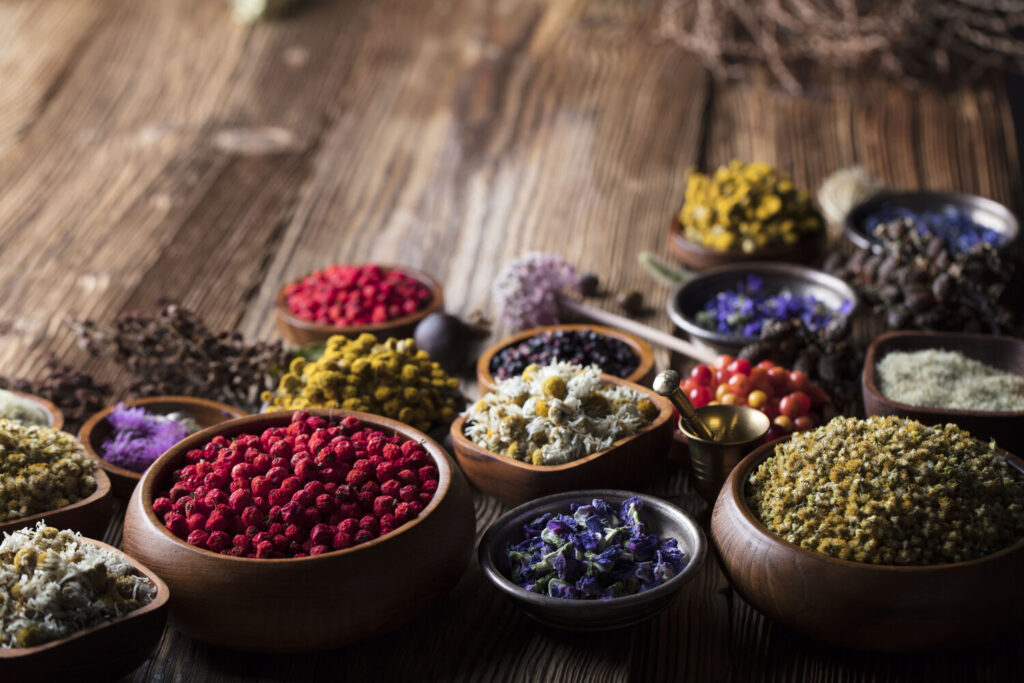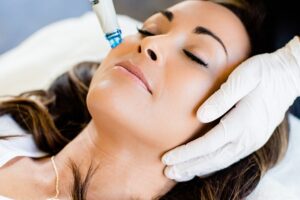
Herbal medicine has long been part of indigenous peoples’ cultural practices in East Africa. For example, some herbs are utilized for improving libido, increasing sexual drive, inducing orgasm and increasing virility.
Epimedium (Horny goat weed) extract has been shown to increase both testosterone levels and brain monoamines, and improve sexual function through vasodilation.
- Yohimbe (Pausinystalia yohimbe):
Yohimbine, found in the bark of this evergreen tree native to central and western Africa, has been promoted as a dietary supplement to treat sexual dysfunction, improve athletic performance and increase libido. Unfortunately, few scientific studies support such claims, while long-term exposure can pose serious health issues – so yohimbe should be avoided entirely for best results.
Yohimbe bark contains an alkaloid called yohimbine that is available as a prescription drug in the United States for treating erectile dysfunction (ED). Yohimbine works by blocking alpha-2 adrenergic receptors on nerve cells to increase blood flow to the penis and maintain an erection, and may even help increase sexual drive among both males and females alike. Yohimbine may also enhance both men and women libidos.
Along with treating ED, this supplement is also often advocated for weight loss, angina (chest pain caused by insufficient blood flow to the heart) and high blood pressure. Although pregnant and breastfeeding women should avoid this supplement due to possible interactions with medications like antidepressants such as monoamine oxidase herbal company.
Yohimbe or yohimbine use can result in side effects including stomach upset, headache, anxiety, high blood pressure, increased heart rate, dizziness and tremors. People with psychiatric conditions should consult their physician prior to using it as it may interfere with norepinephrine levels and affect adrenergic receptors in the brain.
- Muira puama (Ptychopetalum olacoides):
Muira puama (potency wood), commonly referred to in folk medicine, is a small Brazilian tree known for its use as an herbal libido booster and sexual enhancer. This product has long been utilized as part of holistic treatments to boost libido in both men and women alike while supporting healthy erectile function and relieving stress/fatigue symptoms (1)
This herb contains bioactive compounds such as alkaloids and sterols that may aid its aphrodisiac properties, specifically lupeol which activates receptors for sexual hormones like testosterone to heighten sexual responses and heighten sexual response rates. Furthermore, essential oils may add therapeutic value.
Muira puama may also help relieve symptoms of erectile dysfunction by supporting healthy blood circulation throughout the body, and is frequently combined with other herbs for treating impotence, such as Chinese yam (Dioscorea sp.), ginseng, and maca and ginkgo biloba (2).
Muira puama’s natural aphrodisiac effects typically can be felt within an hour or two of taking liquid form of muira puama, while cognitive functions and energy levels may take longer to show effects; they are expected to increase over time.
- Deer antlers (Cervi pantotrichum):
Deer antler has been used as a traditional Chinese medicine for two millennia to nourish blood, reduce swelling and treat impotence. The antler base contains many bioactive compounds including amino acids, polypeptides and proteins; in vitro and in vivo studies have demonstrated its immunomodulatory, anticancer, fatigue reducing, ant osteoporosis and osteoporosis fighting activities as well as sexual enhancement qualities including improving sexual function.
While having antidepressant and other health promoting properties; in vitro studies have also revealed its immunomodulatory, anticancer, fatigue reducing and ant osteoporosis effects as well as its anticancer, fatigue reducing, ant osteoporosis resistance; it has shown to promote bone cell proliferation while inhibit mammary tumor growth as well as inhibit mammary tumors and cell aging effects which often combined with fruit such as Schisandra fruit (Wuweizi), flattened milkvetch seed (Shayuanzi) or grossy privet fruit (Nuzhenzi) to enhance its action further enhance its effects further enhance its benefits further enhance its effects further.
Antlers must be processed to remove fatty tissue and reveal their stem cells. The most powerful part of an antler, with up to nine times more active constituents than its other parts, is the tip, while most American producers only utilize its top layer (which has the most potency). Most American producers only utilize tips, while discarding middles or bottoms which contain lesser active herbal store near me.
Antler powder can be obtained by immersing it in a solution of 2% aqueous alkali, soaking and scrubbing it clean, and making tablets. To ensure it remains pure, an in-depth chemical analysis is conducted on each antler to determine its hypoxanthine content; this data then serves to calculate how much antler powder each tablet contains.
-
Herbal Seahorse (Hippocampus kelloggii)
Hippocampus kelloggii forms faithful pair bonds in which males protect and care for females, while during courtship males employ aggressive competitive behaviors including wrestling and snapping (using the snout to strike at another seahorse’s opercular flap before unleashing a powerful snapper that propels it backwards). (Vincent & Coote 1994a).
All species of seahorses are monogamous and pair bonding is key to maintaining stable population densities. Seahorses are highly mobile animals with flexible body shapes that enable them to blend into their environment; typically inhabiting Zostera marina seagrass Herbal beds (Garrick-Maidment et al. 2004). Unfortunately, seahorses may be negatively affected by changes to water flow patterns, leading to shading areas or decreasing growth rates, which may negatively impact them negatively.
Due to Viagra’s increasing popularity, seahorses have seen an Herbal exponential surge in demand and are increasingly being sold as herbal impotence remedies Herbal . More than 20 million seahorses a year are traded globally; two thirds of which go through Hong Kong. Environmentalists worry that this booming trade could threaten wild seahorse populations.
Seahorses are listed in Appendix II of CITES, Herbal which requires all importing countries to acquire permits to export seahorses without harming wild populations. Unfortunately, lack of basic information on distribution, habitat and abundance makes assessing sustainability difficult for CITES Authorities – especially since seahorses face high levels of exploitation pressure from illegal and unregulated trade throughout their sperm barhany ki medicine.



:strip_icc():format(webp)/kly-media-production/medias/4811231/original/006255000_1713936497-WhatsApp_Image_2024-04-24_at_12.23.26_e028df17.jpg)
:strip_icc():format(webp)/kly-media-production/medias/1948251/original/048661500_1519867907-WhatsApp_Image_2018-03-01_at_07.59.21.jpeg)

